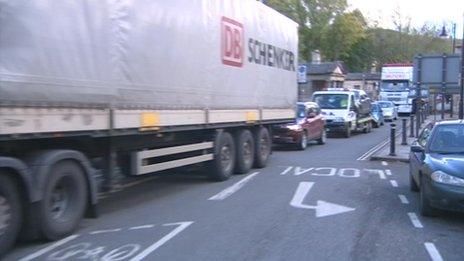Bath: Lorries could be banned on Cleveland Bridge
- Published
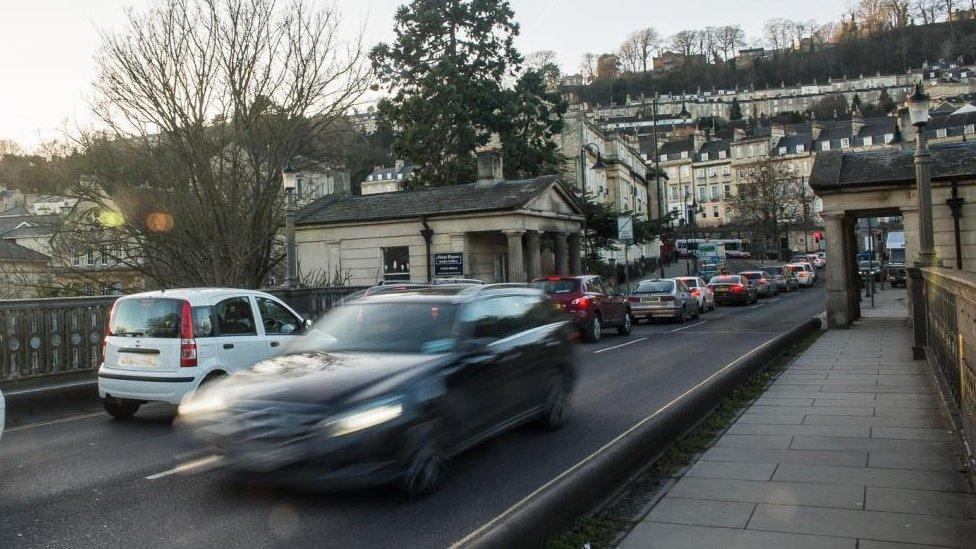
Bath already has a Clean Air Zone which charges lorries £100 to travel through the city centre
Bath council leaders want to ban lorries from a key city centre route.
It would see restrictions on Cleveland Bridge which connects the A36 with London Road and the city centre.
Councillor Manda Rigby said doing nothing was not an option and "the impact of HGVs on the historic city of Bath is corrosive".
Nearby councils, National Highways and the government would need to agree. A similar plan failed in 2012 when neighbouring councils complained.
Under the latest plans, highways officers have been asked to draw up a draft Traffic Regulation Order for Cleveland Bridge.
There is currently a temporary 18-tonne limit in place on the Grade II*-listed structure because of repairs.
Some £3.5m has been spent improving the bridge and the repair work and temporary restrictions are coming to an end.
Deputy council leader Richard Samuel tabled an amendment asking officers to prepare a draft Traffic Regulation Order for the bridge to restrict lorries using the city as a cut-through and to consult heritage groups and residents, which was passed unanimously.
Officers will also investigate other options that may achieve a similar result and report back to cabinet in November.
Cabinet member for transport Ms Rigby told the meeting at Bath Guildhall that the 200-year-old bridge was never intended for today's volume and weight of traffic.
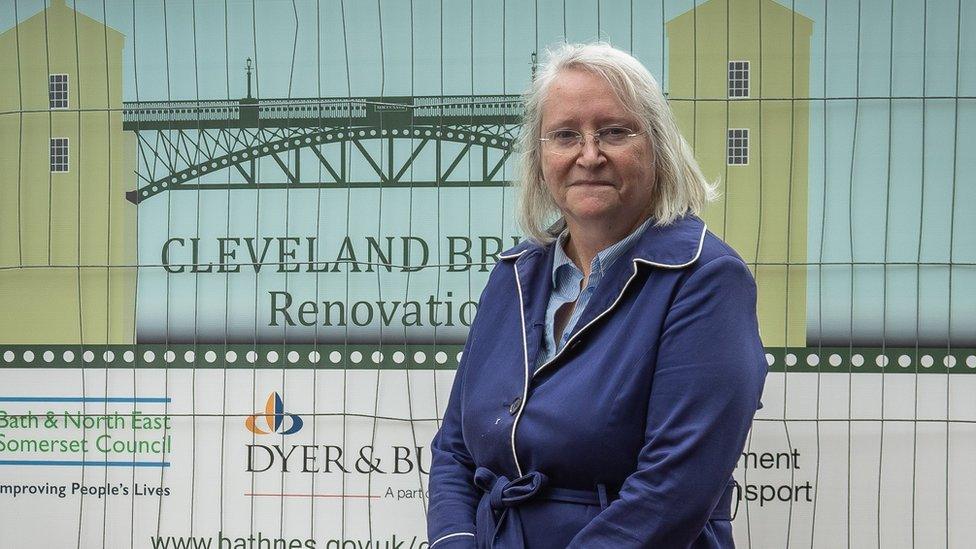
Manda Rigby said Cleveland Bridge was on schedule to reopen three months after closing and that the weight limit would expire once the repairs were completed
She said a lot had changed since the failed Traffic Regulation Order in 2012, including the climate emergency declaration and millions of pounds spent upgrading nearby Wiltshire roads, including the A350 which she said should replace the A36/A46 that passes over Cleveland Bridge as the main strategic route.
Mr Samuel said the lorries caused lots of problems in Bath.
He said: "Road surfaces are damaged constantly by the hammering they take from these beasts, historic structures have been hit, the sheer difficulty of manoeuvring these HGVs causes congestion and delays, and in a nutshell Bath's streets were not built for these giants."

Follow BBC West on Facebook, external, Twitter, external and Instagram, external. Send your story ideas to: bristol@bbc.co.uk , external
- Published23 June 2021
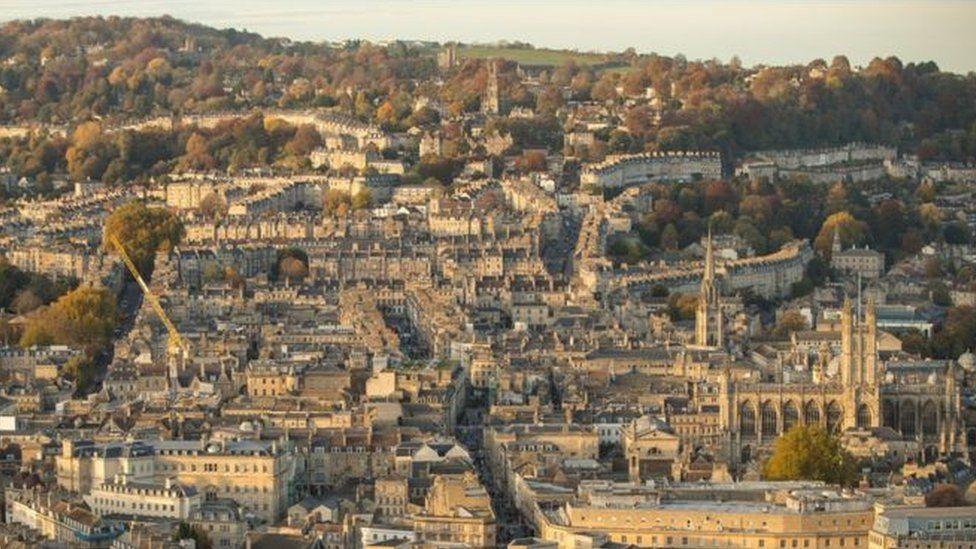
- Published14 March 2021
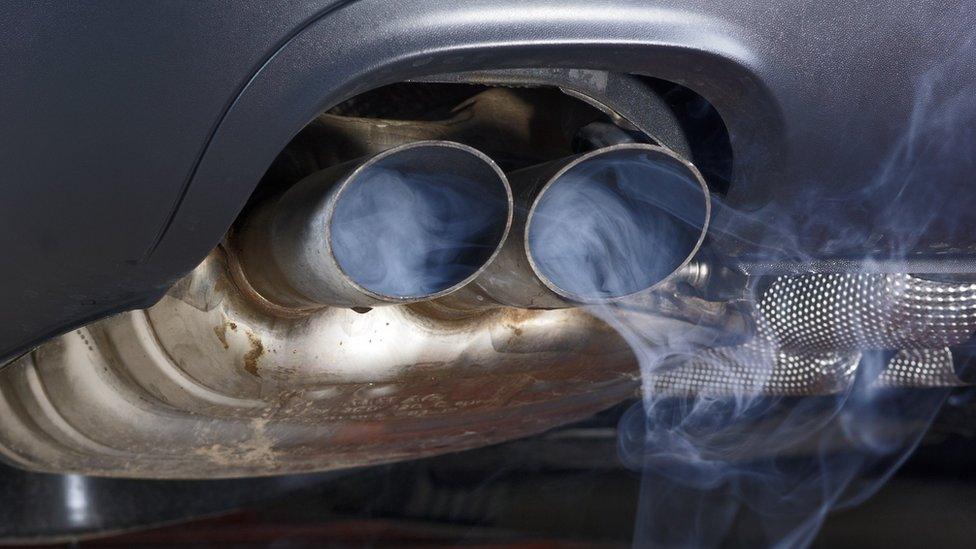
- Published31 October 2012
